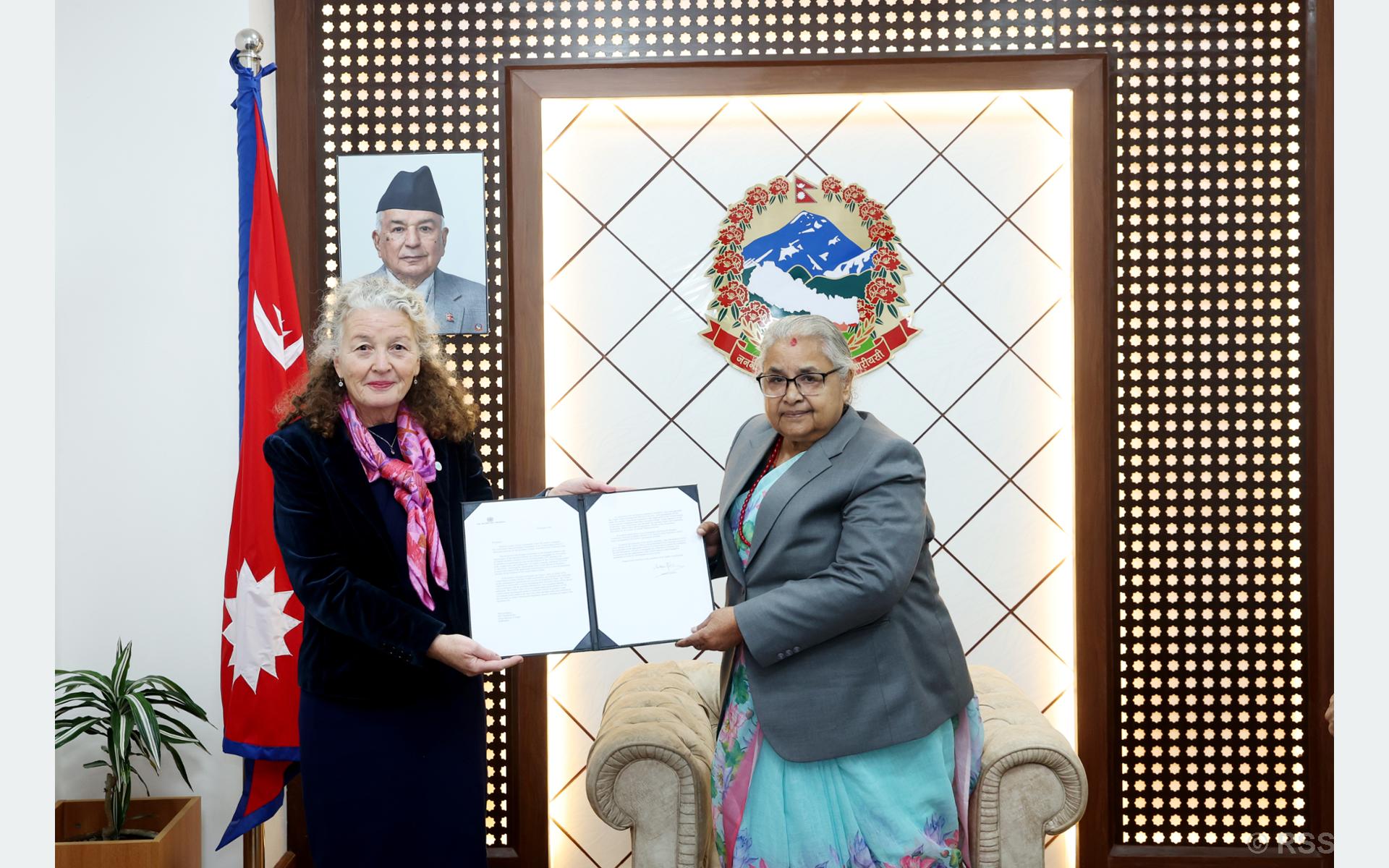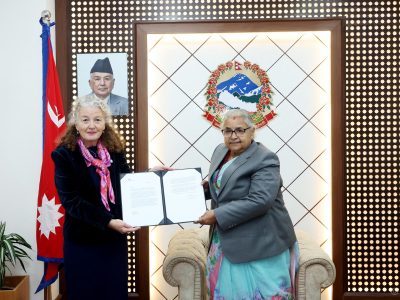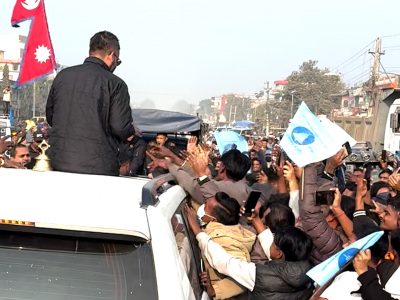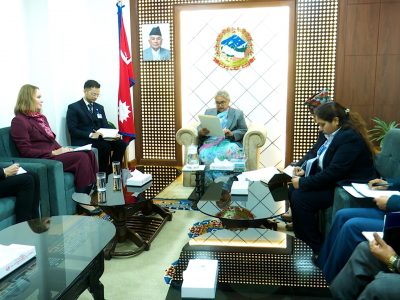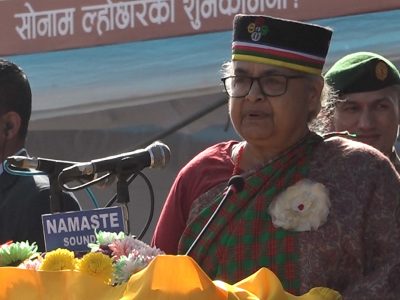National Civil Society Organizations Demand Justice and Reparations for Climate Crises in the run-up to COP28
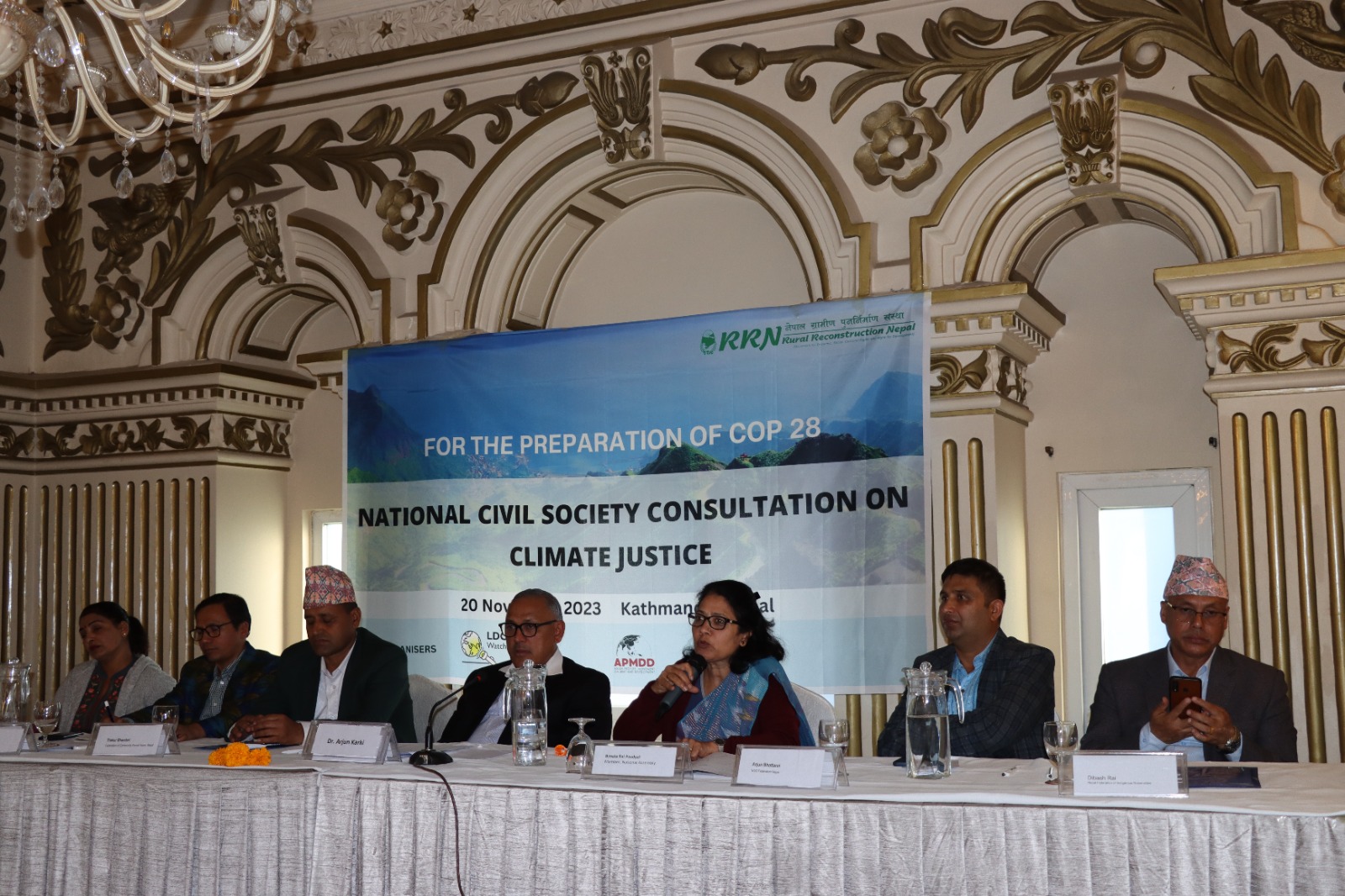
Kathmandu, Nov 22: Rural Reconstruction Nepal, in partnership with LDC Watch, Asian Peoples’ Movement on Debt and Development (APMDD) and South Asia Alliance for Poverty Eradication (SAAPE), held a consultation today in Kathmandu to foster inclusive dialogues over the civil society concerns on climate crisis in Nepal ahead of the upcoming 28th Conference of the Parties (COP28) to be held in Dubai from November 30 to December 12.
A declaration endorsed by close to 40 organizations and 90 individuals across the country demanded that “the rich and industrialized countries that have historically emitted high amounts of greenhouse gas, should fulfill their climate finance commitments towards developing and least developed countries, including Nepal, which have the least contribution towards the crisis.” In addition, the declaration reads, “Climate finance should be accessible, adequate, timely delivered, and non-debt creating climate finance to increase the resilience capacities of countries like Nepal who are directly impacted by climate change.”
“Nepal contributes 0.027% to greenhouse gas emissions but lies in fourth place in terms of facing climate change impacts,” Bhagawan Shrestha from Association of INGOs in Nepal shared the stark fact at the start of the event. Civil society members urged the developed countries to fulfill their responsibility towards ensuring climate justice, especially for developing and least developed countries.
“Developed countries, which historically bear the responsibility for the climate crisis and benefited from the activities emitting the most greenhouse gas, must step up and take the responsibility to mitigate climate change impacts,” Arjun Kumar Karki from Rural Reconstruction Nepal emphasized.
Adding to it, Thakur Bhandari from the Federation of Community Forest Users of Nepal (FECOFUN) stated, “The contribution of 14 million community-forest users in alleviating the impacts of climate change must be acknowledged. Nepal must be compensated as it faces disproportionate impacts and such compensation must reach the ground level.”
Moreover, women, indigenous groups and minorities are at the receiving end of the climate crisis. “Indigenous communities are inherently dependent on nature and would be the first to be impacted by climate change. Hence, they should be an important stakeholder in policy-making,” Divas Rai, NEFIN Nepal General Secretary, shared.
Financing for adaptation, mitigation, and loss and damage was the crux of the discussion. Civil society members expressed their concern that climate financing for LDCs and developing countries is becoming mitigation-centric and dominated by debt, which is against the principle of climate justice.
On one hand, robust negotiations are crucial to advocate for our case, highlighting our vulnerability against disaster impacts. Simultaneously, it is equally important to establish effective mechanisms at the national and local levels for the utilization of climate finance.
“Loss & Damage was a significant achievement, but the operationalization of the finance mechanism within it is still pending. As COP occurs annually, substantial preparation is required on our end for effective negotiations, “Honorable Member of Parliament (National Assembly) Bimala Rai Paudyal stated.
Likewise, Bharati Pathak, Member of Parliament of Bagmati Provincial Assembly, demanded transparency, decentralization and localization of climate finance, “Climate finance received by the government, through the one-door mechanism, is under the control of the Ministry of Finance at the center. Transparency is required in implementation. There should be a clear mechanism of decentralization and localization of policy-making as well as distribution of funds,”
Civil society members demanded a departure from the business-as-usual approach when the government and civil society members will be participating at the annual climate conference (COP 28). Nepal’s civil society urged the government to adopt a clear internal and external strategy, encompassing a well-defined domestic policy and a well-prepared international negotiation or lobbying strategy, in order to demand reparations for the climate impacts it has been facing.
Facebook Comment
latest Video
Trending News
- This Week
- This Month






